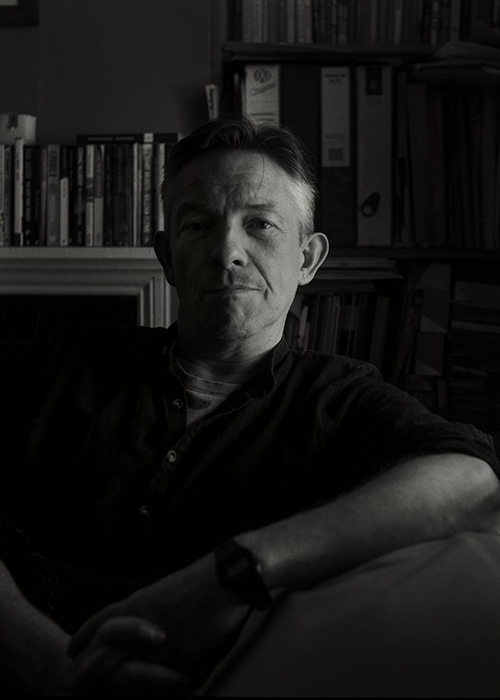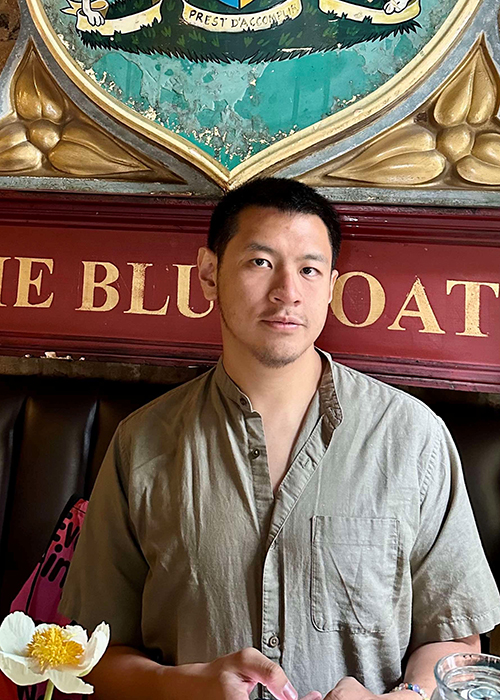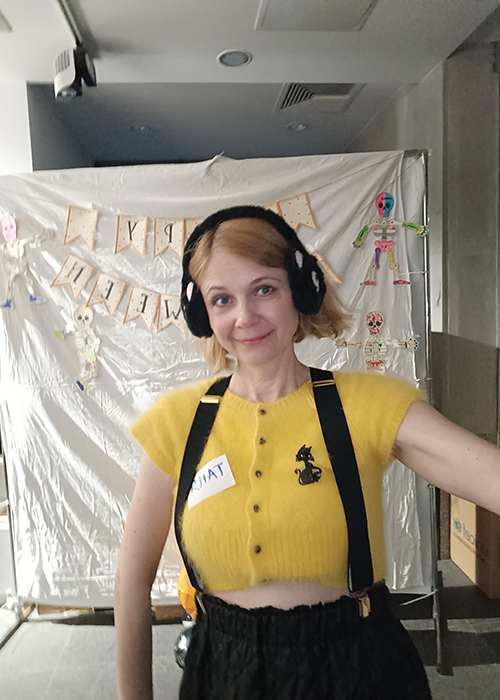The first prize winner of the 2025 Seán Ó Faoláin International Short Story Competition, Tim Collyer, will read his winning story on 18th October at the Cork International Short Story Festival. The first prize, second prize, and shortlisted stories will be published in Southword (summer 2026). Laura Jean McKay was the judge and she kindly gave judging notes for each selected story.
First Prize
Spent Leaves by Tim Collyer
Wiltshire, England

Tim Collyer is a Wiltshire-based writer of speculative fiction, literary drama, and darkly comic tales. He won the New2theScene Flash Fiction Competition, was Runner-Up in both the Pokrass Flash Fiction Award and the DuMaurier Literature Award, and published three consecutive sci-fi stories in Andromeda Magazine. When not writing, he brews craft beer, grows chillies, and ponders unruly characters.
“‘Spent Leaves’ had me from the very first line and never let me go. I was transfixed by the gentle speculative beauty of this piece and the way the author manages to weave global and local crises into the intimacy of daily ritual. In ‘Spent Leaves’ there are echoes of Dylan Thomas’ Under Milk Wood – the village of opinions – and yet the voice is all the author’s own. This is a story that speaks to our times, in elegant, playful prose. Congratulations to Timothy Collyer, the winner of the 2025 Seán Ó Faoláin International Short Story Competition.”
Second Prize
Stay by Suzanne Hevey
Naarm / Melbourne, australia

Suzanne Hevey lives in Naarm (Melbourne), Australia, descended from emigrants and transported convicts of Ireland. She is researching a work of historical fiction tracing these roots and exploring, through short stories and poems, the themes of displacement, erasure, and survival that have emerged. While a voracious reader, researcher, and writer her whole life, ‘Stay’ — inspired by the true story of Clarabelle and Valentine at Edgar’s Mission — is both her first submission and first published work.
“‘Stay’ was one of the few stories in a strong shortlist that gave me goose bumps. I was physically and emotionally moved by this piece that depicts the more-than-human experience in such clear, poetic and uncompromising detail. What particularly struck me was the forgiveness embedded in this interspecies tale. An impressive work that was a clear prize placement in the Seán Ó Faoláin International Short Story Competition this year. Congratulations to Suzanne Hevey.”
Shortlist
Shipping Out by David Frankel
Kent, England

David Frankel’s short stories have been shortlisted in numerous competitions including The Commonwealth Prize, The Bristol Prize, The Bridport Prize, The Society of Authors’ ALCS Tom-Gallon Trust Award, and the Fish Memoir Prize. His work has been widely published in journals and anthologies and as chapbooks by Nightjar Press and Salo Press. His short story collection, Forgetting is How We Survive, was shortlisted for the 2024 Edge Hill Prize. Photo credit: Robert Greshoff.
“We come of age with the protagonist in ‘Shipping Out’, a story that documents the beauty, claustrophobia, intimacy and violence of village life. This is a piece that manages to represent nostalgia through spare yet stunning prose and characterisation. Congratulations to David Frankel.”
The Ones You’re With by JP Garvey
Mayo, Ireland

JP Garvey started sending stories and poems (to competitions only) in 2020 when he was shortlisted for Hungry Hill’s ‘Politics meets Poetry’, and came second in the I.O. Short Story – in 2022 he won it. In 2023 he finished 2nd in the O’Faolain International Short Story Prize, was longlisted in Rialto’s ‘Nature and Place’ Poetry. In 2024 he was longlisted for the Fish flash fiction prize, Fish memoir prize, and the Master’s Review Summer Short Story. In 2025 he was shortlisted for the WBTS memoir prize, placed again in the O’Faolain International Short Story Prize and had a poem chosen for Feile Luimnigh Festival 2026.
“I knew from very early on that ‘The Ones You’re With’ would be placed in the competition. The wry denial in the narrator’s voice carries a story about an affair and the mirrored thrill and discombobulation of navigating a new city. There is a beauty to this piece that lingers after the last word. Congratulations to JP Garvey.”
What is Gnawing at the Rinds That Night by Farid Hamka
Jakarta, Indonesia

Farid Hamka is a Jakarta based writer. The latest decade sees his odyssey from a politics graduate to a management consultant to the founder of Bookhive Indonesia to trying to distil his thoughts in fiction writing. He speaks ten languages and counting, dances in high heels, dabbles in Japanese ink painting and calligraphy, and is obsessed with more things than he has time for. He is a graduate of Faber Academy’s Writing a Novel course and had written film reviews and opinion pieces on The Beaver, the student paper of the London School of Economics and Political Science.
“‘What is Gnawing at the Rinds That Night’ is a queer epic, where a wedding sets the stage for a sweeping, heartbreaking and rollicking plot. It was a joy to read this generous short story. Huge congratulations to Farid Hamka on this warmly entrancing piece.”
In the Box — Me. In the Parcel — Us by Tetiana Suchodolska
Kyiv, Ukraine

Tetiana Suchodolska is a Polish-Ukrainian writer based in Warsaw. Before Russia’s full-scale invasion of Ukraine in 2022, she worked in Kyiv in marketing, PR, and events — shaping other people’s narratives. Since then, she has turned to her own words. She now coordinates the Ukrainian Educational Hub in Poland, helping others stay grounded in lives they never chose. She crafts lyrical stories, children’s fairy tales, and reflective essays that search for light within displacement, writing in English, Polish, and Ukrainian. Her work has appeared in Refugee Diaries (Poland, 2023).
“‘In the Box — Me. In the Parcel — Us’ is an example of how a very short story can embody an enormous topic. In this powerful piece about a parcel sent, with so much hope, from Ukraine, the author manages to depict the anguish of war. I warmly congratulate Tatiana Narizhna-Suchodolska on such an impressive story.”
